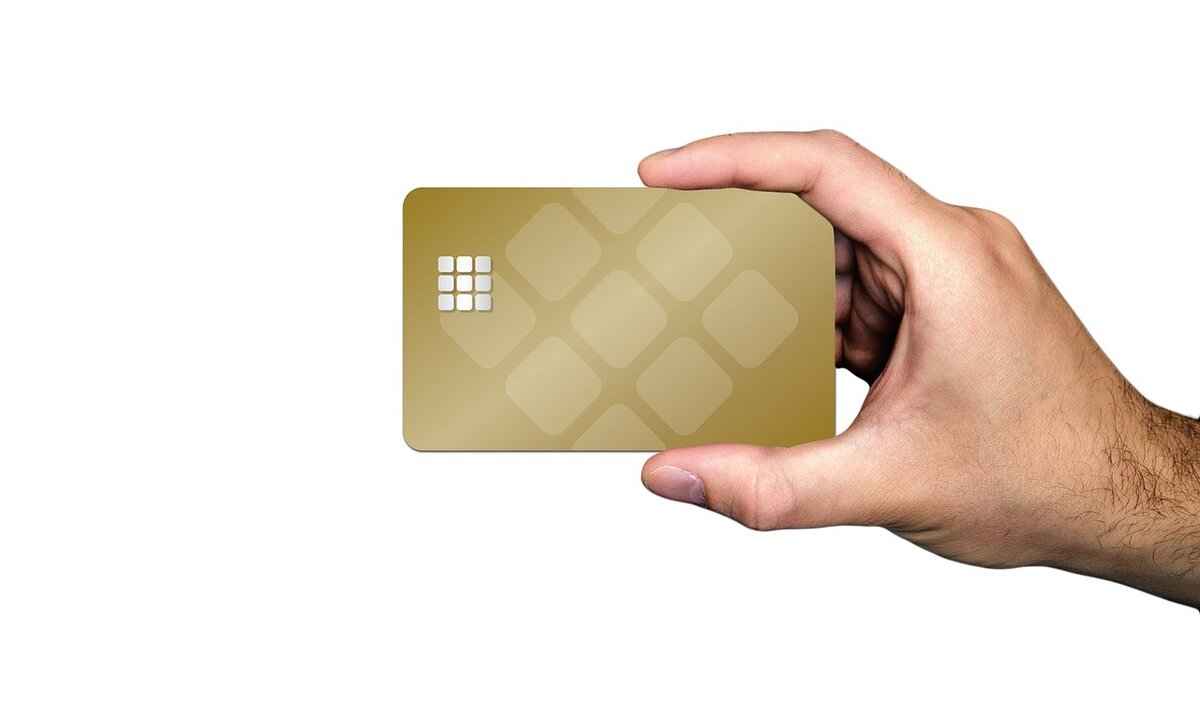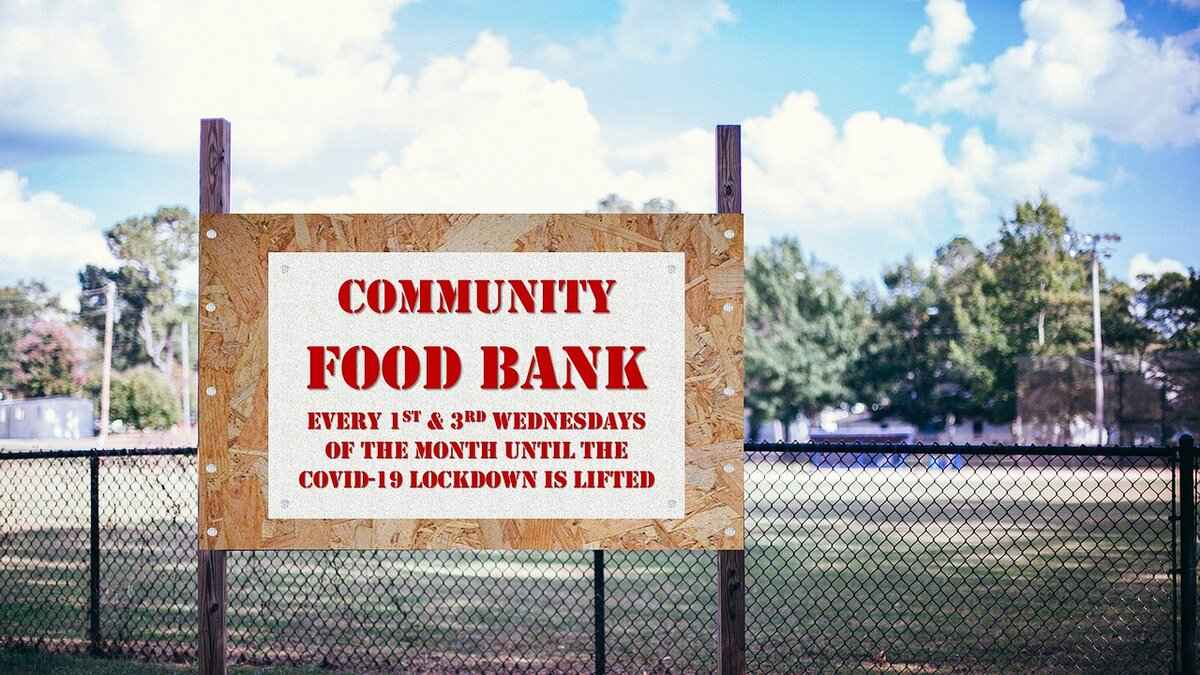When faced with the unfortunate situation of a frozen bank account, it is essential to understand the steps you can take to resolve the issue effectively. This article provides a comprehensive guide to help you navigate the complexities of a frozen account, including potential reasons for the freeze, your legal rights, and actionable steps to regain access to your funds.
Understanding Why Your Bank Account Was Frozen
A bank account can be frozen for several reasons. Common causes include:
- Unpaid debts – Creditors may freeze your account if you have outstanding liabilities.
- Suspicious activity – Banks monitor accounts for unusual transactions that may indicate fraud.
- Legal actions – Court judgments or liens can lead to a freeze on your funds.
Identifying the specific reason behind the freeze is crucial for addressing the matter effectively.
Common Reasons for Bank Account Freezes
Several factors can contribute to a bank account freeze, including:
- Tax liens – If you owe taxes, government agencies may place a lien on your account.
- Court judgments – Creditors can request a freeze if they obtain a judgment against you.
- Fraud suspicions – Unusual spending patterns may trigger a temporary freeze while the bank investigates.
Understanding these reasons is vital for resolving the freeze and regaining access to your funds.
Your Rights When Your Account Is Frozen
As a consumer, you have specific rights when your bank account is frozen:
- Consumer protection laws – Various laws protect you against wrongful account freezes.
- Notification requirements – Banks must inform you of the freeze and its reasons.
Familiarizing yourself with these rights empowers you to take appropriate actions and seek resolution.
Steps to Take Immediately After Your Account Is Frozen
Taking prompt action is crucial when your account is frozen. Here are the steps to follow:
- Contact your bank – Reach out to your bank’s customer service for clarification on the freeze.
- Gather necessary documentation – Collect relevant documents such as identification and account statements to expedite the resolution process.
How to Resolve a Bank Account Freeze
Resolving a bank account freeze often involves addressing the underlying issues:
- Pay off debts or liabilities – If your account is frozen due to unpaid debts, settling these obligations may lift the freeze.
- Negotiate with creditors – Discussing payment plans or settlements with creditors can lead to a quicker resolution.
Legal Options for Challenging an Account Freeze
If you believe your account has been wrongfully frozen, consider these legal options:
- Consult with an attorney – Legal advice can help you understand your rights and potential actions to challenge the freeze.
- File a complaint with regulatory agencies – If you suspect wrongful actions by your bank, filing a complaint can be an effective way to seek resolution.
In conclusion, while a frozen bank account can be a distressing situation, understanding your rights and the steps to take can significantly ease the process of regaining access to your funds. By following the outlined steps and seeking assistance when necessary, you can navigate this challenge more effectively.

Understanding Why Your Bank Account Was Frozen
is crucial for regaining access to your funds and addressing any underlying issues. A bank account can be frozen for several reasons, each with different implications and potential resolutions. This article will delve into the common reasons for account freezes, your rights as a consumer, and actionable steps to take when faced with this situation.
Bank accounts may be frozen due to a variety of factors, including:
- Unpaid Debts: If you owe money to creditors, they may seek a court order to freeze your bank account, allowing them to recover funds directly.
- Suspicious Activity: Banks have a responsibility to monitor accounts for fraudulent transactions. If suspicious activity is detected, they may freeze the account to protect your funds.
- Legal Actions: Court judgments, tax liens, or other legal actions can also lead to an account freeze. It’s essential to understand the legal context behind such actions.
As a consumer, you have specific rights when your bank account is frozen. Familiarizing yourself with these rights can empower you to take appropriate actions:
- Notification: Banks are typically required to notify you of a freeze and provide reasons for it. This requirement ensures transparency and allows you to respond accordingly.
- Consumer Protection: Various consumer protection laws exist to safeguard your rights against wrongful account freezes. Understanding these laws can help you challenge any unjust actions taken by your bank.
If you find your bank account frozen, taking prompt action is vital:
- Contact Your Bank: The first step is to reach out to your bank for clarification on the freeze. A bank representative can provide details about the situation and guide you on the next steps.
- Gather Documentation: Collect relevant documents, such as identification and account statements. Being prepared can expedite the resolution process and make discussions with your bank more effective.
Resolving a bank account freeze involves addressing the underlying issues and communicating effectively with your bank:
- Pay Off Debts: If your account is frozen due to unpaid debts, paying them off may be necessary to lift the freeze. Understanding your financial obligations is crucial in this process.
- Negotiate with Creditors: In some cases, negotiating with creditors can lead to a resolution. Discussing payment plans or settlements may help release your account more quickly.
If you believe your account has been wrongfully frozen, exploring legal options can be an effective way to challenge the freeze:
- Consult an Attorney: Seeking legal advice can provide insights into your options for challenging a bank account freeze. An attorney can help you understand your rights and potential actions.
- File a Complaint: If you suspect wrongful actions by your bank, filing a complaint with regulatory agencies can be an avenue to seek resolution. Understanding the process can help you take effective action.
In summary, understanding the reasons behind a bank account freeze, your rights, and the steps to take can empower you to resolve the situation effectively. Always remember to act promptly and gather the necessary information to facilitate communication with your bank.

Common Reasons for Bank Account Freezes
When faced with a frozen bank account, understanding the underlying reasons is essential for regaining access to your funds. Bank accounts can be frozen for a variety of reasons, and being informed can significantly expedite the resolution process. Below, we explore the common reasons for bank account freezes and how they can impact you.
Bank accounts can be frozen due to several factors, including:
- Tax Liens: If you owe taxes to the government, a tax lien may be placed against your account. This legal claim allows the government to freeze your account until the debt is settled.
- Court Judgments: A creditor can obtain a court judgment against you, leading to a freeze on your bank account. This often occurs when debts remain unpaid and the creditor takes legal action to recover the owed amount.
- Fraud Suspicion: If your bank detects unusual or suspicious activity in your account, it may freeze your account as a precautionary measure. This is to protect both you and the bank from potential fraud.
- Child Support or Alimony Payments: Courts can mandate that a portion of your funds be frozen for unpaid child support or alimony, ensuring that these obligations are met.
- Bank Policies: Sometimes, banks have their own internal policies that may lead to a freeze. This could be due to a failure to verify your identity or discrepancies in your account information.
A tax lien is an important legal claim against your property, including your bank account, when you fail to pay your taxes. The IRS or state tax agencies can initiate this process, and it often results in a freeze until the owed taxes are paid. If you find yourself in this situation, it is crucial to:
- Contact the tax agency to discuss your debt.
- Seek assistance from a tax professional or attorney specialized in tax law.
When a creditor wins a court judgment against you, they may request a bank account freeze to recover the owed amount. Understanding your legal rights is essential in these circumstances. You have the right to:
- Challenge the judgment if you believe it was obtained unjustly.
- Negotiate with creditors to reach a payment plan or settlement.
As a consumer, you have specific rights when your bank account is frozen. Familiarizing yourself with these rights can empower you to take appropriate actions:
- Notification Requirements: Banks are typically required to notify you of a freeze and the reasons behind it. Ensure that you receive this information in writing.
- Consumer Protection Laws: Various laws protect you from wrongful account freezes. Understanding these laws can help you challenge any unjust actions taken by your bank.
Taking prompt action is crucial when your account is frozen. Here are the steps to follow:
- Contact Your Bank: Reach out to your bank for clarification on the freeze. A representative can provide details about the situation and guide you on the next steps.
- Gather Documentation: Collect relevant documents, such as identification and account statements, to expedite the resolution process.
Resolving a bank account freeze involves specific steps, including:
- Paying Off Debts: If your account is frozen due to unpaid debts, paying them off may be necessary to lift the freeze.
- Negotiating with Creditors: Discussing payment plans or settlements with creditors can lead to a quicker resolution.
If you believe your account has been wrongfully frozen, exploring legal options is crucial. Consider:
- Consulting with an Attorney: Legal advice can provide insights into challenging a bank account freeze and understanding your rights.
- Filing a Complaint: If you suspect wrongful actions by your bank, filing a complaint with regulatory agencies can be an avenue for resolution.
Understanding the common reasons for bank account freezes can help you navigate this challenging situation effectively. By taking the right steps and knowing your rights, you can work towards regaining access to your funds.
Tax Liens and Government Actions
When dealing with tax-related issues, understanding the implications of tax liens and government actions is crucial. A tax lien is a legal claim against your property due to unpaid taxes, and it can lead to severe consequences, including the freezing of your bank account. This article aims to provide a comprehensive overview of tax liens, how they affect your finances, and the steps you can take to address them.
A tax lien occurs when a government entity places a claim against your property because of unpaid taxes. This can include federal, state, or local taxes. Once a lien is filed, it becomes a matter of public record, which can negatively impact your credit score and financial standing. The lien remains until the debt is paid in full, or the statute of limitations expires.
If you owe taxes and fail to address the situation, the government can take further action, such as placing a lien on your bank account. This means that your bank may freeze your account to prevent you from accessing your funds until the debt is resolved. It’s essential to act quickly in such situations to avoid further financial strain.
As a taxpayer, you have rights when facing a tax lien. The Taxpayer Bill of Rights ensures that you are treated fairly and have access to information regarding your tax obligations. If your account is frozen due to a tax lien, you have the right to:
- Receive notification from the government agency regarding the lien.
- Challenge the lien if you believe it was placed in error.
- Request a payment plan or offer in compromise to settle your tax debt.
If you find yourself in a situation where your bank account has been frozen due to a tax lien, follow these steps:
- Contact Your Bank: Reach out to your bank to understand the reason for the freeze and gather necessary details.
- Review Your Tax Situation: Check your tax records to confirm the validity of the lien and the amount owed.
- Communicate with the Tax Authority: Contact the relevant government agency to discuss your options for resolving the lien.
To lift the freeze on your account, you will need to resolve the underlying tax issue. This may involve:
- Paying Off Your Debt: If possible, pay the amount owed to clear the lien and unfreeze your account.
- Negotiating a Settlement: If you cannot pay in full, consider negotiating a payment plan or settlement with the tax authority.
- Seeking Professional Help: Consulting with a tax attorney or financial advisor can provide guidance tailored to your situation.
To avoid future tax liens, it’s essential to stay on top of your tax obligations. Here are some preventative measures:
- File your tax returns on time and pay any amounts due.
- Keep accurate financial records to track your income and expenses.
- Consider setting aside funds regularly to cover your tax liabilities.
In conclusion, understanding tax liens and their implications is vital for managing your finances effectively. If your account is frozen due to a tax lien, take immediate action to resolve the issue and regain access to your funds. By being proactive and informed, you can navigate these challenges with greater confidence.
Legal Judgments and Court Orders
When facing a situation where your bank account has been frozen due to legal judgments or court orders, it’s crucial to understand the implications and your rights. This article provides a comprehensive overview of what to do if your bank account is frozen, focusing on the legal aspects and practical steps you can take.
Understanding Legal Judgments
A legal judgment occurs when a court rules in favor of a creditor, confirming that you owe a debt. This judgment can lead to various actions, including the freezing of your bank account. It’s important to recognize that a creditor must first obtain a judgment before they can request a bank account freeze. If you find yourself in this situation, knowing your rights and the process is essential.
Why Would a Creditor Freeze Your Bank Account?
- Failure to pay a debt after a judgment has been issued.
- Unpaid loans, credit card debts, or other financial obligations.
- Legal actions taken by the creditor to recover owed funds.
Your Rights During a Bank Account Freeze
As a consumer, you have specific rights when your bank account is frozen. Understanding these rights is vital for navigating the situation:
- Notification: Banks are generally required to notify you of the freeze and provide reasons for it.
- Access to Funds: In certain cases, you may still access a portion of your funds, especially if they are exempt from garnishment.
- Legal Recourse: If you believe the freeze is unjust, you have the right to challenge it in court.
Steps to Take If Your Account Is Frozen
Taking prompt action is crucial. Here are the steps you should follow:
- Contact Your Bank: Reach out to your bank to understand the specifics of the freeze. They can provide details about the judgment and the amount owed.
- Gather Documentation: Collect any relevant documents, such as court orders, identification, and account statements, to support your case.
Resolving the Freeze
To lift the freeze, you may need to:
- Pay Off Debts: If the freeze is due to unpaid debts, settling these obligations can help.
- Negotiate with Creditors: Consider discussing payment plans or settlements with the creditor to resolve the issue amicably.
Exploring Legal Options
If you believe your account has been wrongfully frozen, you have legal avenues to explore:
- Consult an Attorney: A legal professional can provide insights into your rights and help you navigate the process of challenging the freeze.
- Filing Complaints: If you suspect wrongful actions by your bank, you can file a complaint with relevant regulatory agencies.
In summary, understanding your rights and the steps to take when your bank account is frozen due to legal judgments is crucial. By being informed and proactive, you can navigate this challenging situation more effectively.

Your Rights When Your Account Is Frozen
Experiencing a frozen bank account can be a distressing situation, leaving you unable to access your funds. However, it’s crucial to understand that as a consumer, you possess certain rights in this scenario. Familiarizing yourself with these rights can empower you to take appropriate actions and seek resolution effectively.
Understanding Your Rights
When your bank account is frozen, it’s typically due to legal or financial issues, such as unpaid debts or suspicious activities. Regardless of the reason, you have the right to be informed about the freeze and its implications. Here are some key rights you should be aware of:
- Right to Notification: Banks are generally required to notify you of the freeze and its reasons. This notification should include details about the nature of the freeze and the specific actions that led to it.
- Right to Challenge: If you believe the freeze is unjust, you have the right to challenge it. This may involve contacting your bank, providing necessary documentation, or even seeking legal counsel.
- Right to Access Basic Needs: In many states, laws protect consumers by allowing limited access to funds for essential living expenses, even if the account is frozen.
Consumer Protection Laws
Consumer protection laws exist to safeguard your rights against wrongful actions taken by financial institutions. These laws may vary by state, but they generally provide a framework for addressing grievances related to account freezes. Understanding these laws can significantly benefit you in challenging any unjust actions.
Documentation and Transparency
When your account is frozen, it’s vital to gather all relevant documents. This includes:
- Identification proofs such as a driver’s license or passport
- Account statements
- Any correspondence from the bank regarding the freeze
Having these documents on hand can facilitate discussions with your bank and expedite the resolution process.
Steps to Take When Your Account is Frozen
Upon discovering that your account has been frozen, prompt action is essential. Here are the steps you should take:
- Contact Your Bank: Reach out to your bank’s customer service immediately. A representative can provide clarity on the situation and guide you on the next steps.
- Request Written Confirmation: Ask for a written explanation of the freeze, including the reasons and any applicable laws or regulations.
Resolving the Freeze
To resolve the freeze, you may need to address the underlying issues that caused it. This could involve:
- Paying Off Debts: If the freeze is due to unpaid debts, settling these obligations may be necessary to lift the freeze.
- Negotiating with Creditors: In some cases, negotiating payment plans with creditors can facilitate a quicker resolution.
Legal Options
If you believe your account has been wrongfully frozen, consider exploring legal options:
- Consulting an Attorney: An attorney can provide valuable insights into your rights and potential actions you can take.
- Filing a Complaint: If you suspect wrongful actions by your bank, filing a complaint with regulatory agencies can be an effective way to seek resolution.
In conclusion, understanding your rights when your bank account is frozen is crucial for navigating this challenging situation. By being informed and proactive, you can take the necessary steps to resolve the issue and regain access to your funds.
Consumer Protection Laws
play a crucial role in safeguarding your financial rights, especially when it comes to bank account freezes. Understanding these laws is essential for anyone who finds themselves in a situation where their bank account has been unjustly frozen.
When a bank freezes your account, it can be a distressing experience, often leaving you without access to your funds. Fortunately, various laws exist to protect consumers from wrongful actions taken by financial institutions. These laws not only outline your rights but also provide you with the tools necessary to challenge any unfair practices.
Consumer protection laws vary by state, but they generally aim to ensure that financial institutions operate fairly and transparently. These laws require banks to provide clear reasons for freezing an account and to notify you promptly. If you believe your account has been frozen without just cause, these laws can empower you to take action.
- Fair Debt Collection Practices Act (FDCPA): This federal law protects consumers from abusive debt collection practices. If your account is frozen due to a debt, understanding this act can help you assess whether the creditor followed legal protocols.
- Truth in Lending Act (TILA): This law ensures that lenders disclose the terms and conditions of loans, which can be relevant if your account freeze is linked to a loan default.
- Equal Credit Opportunity Act (ECOA): This act prohibits discrimination in lending, ensuring that all consumers have equal access to credit and financial services.
If you suspect that your bank has frozen your account unlawfully, you have several options. First, contact your bank to request a detailed explanation of the freeze. Under consumer protection laws, banks are typically required to provide this information.
If the bank fails to resolve the issue, you can escalate the matter by filing a complaint with regulatory agencies such as the Consumer Financial Protection Bureau (CFPB) or your state’s banking department. These agencies can investigate your claims and may assist in resolving disputes between you and your bank.
When dealing with a frozen bank account, documentation is key. Keep records of all communications with your bank, including dates, times, and the names of representatives you speak with. Additionally, gather any relevant documents that support your case, such as account statements or correspondence regarding debts.
If you find that your attempts to resolve the issue are unsuccessful, consulting with an attorney who specializes in consumer rights can be beneficial. An experienced attorney can help you understand your rights, navigate complex legal processes, and represent you in disputes with your bank.
In summary, understanding consumer protection laws is vital for anyone facing a bank account freeze. By knowing your rights and the options available to you, you can effectively challenge any wrongful actions taken by your bank. Always remember to document your interactions and seek legal assistance if necessary to protect your financial interests.
Notification Requirements
When a bank account is frozen, it is essential for financial institutions to adhere to specific . These regulations are designed to protect consumers and ensure transparency throughout the process. Understanding these requirements not only helps you stay informed but also empowers you to advocate for your rights effectively.
In general, banks are required to notify account holders when a freeze occurs. This notification typically includes the reason for the freeze, the duration, and any actions the account holder may take to resolve the situation. The notification can come in various forms, including a letter, email, or phone call, depending on the bank’s policies and the urgency of the matter.
It is crucial for banks to provide this information to ensure that consumers are not left in the dark regarding their financial status. For instance, if a bank freezes an account due to suspicious activity, the account holder should be informed promptly to allow for any necessary clarifications or disputes. Failure to notify customers can lead to confusion, stress, and potentially further legal complications.
Moreover, banks must comply with federal and state regulations that govern notification procedures. The Truth in Savings Act and the Electronic Fund Transfer Act are two significant pieces of legislation that outline the rights of consumers and the responsibilities of financial institutions in these scenarios. Familiarizing yourself with these laws can provide insight into what to expect when your account is frozen.
In addition to the initial notification, banks are often required to provide updates if the freeze is extended or if additional information becomes available. This ongoing communication is vital for maintaining trust between the bank and its customers. If you do not receive any notification about a freeze, it is advisable to contact your bank immediately to inquire about the status of your account.
Here are some key points regarding notification requirements:
- Timeliness: Banks must notify you as soon as possible after the freeze is enacted.
- Clarity: The reason for the freeze should be clearly stated, allowing you to understand the situation fully.
- Contact Information: Notifications should include information on how to contact the bank for further clarification or to dispute the freeze.
- Legal Rights: Information about your rights in relation to the freeze should be included in the notification.
If you believe that your bank has not followed proper notification procedures, it is essential to take action. You can start by documenting all communications with your bank and seeking legal advice if necessary. An attorney specializing in consumer rights can provide guidance on how to proceed and may assist in filing a complaint with regulatory agencies if warranted.
In summary, understanding the associated with bank account freezes is vital for consumers. Being aware of your rights and the obligations of your bank can significantly impact your ability to resolve the situation effectively. Always stay informed, and don’t hesitate to reach out to your bank for clarity when faced with an account freeze.

Steps to Take Immediately After Your Account Is Frozen
When you find yourself in the unfortunate situation of having your bank account frozen, prompt action is essential. The first step is to remain calm and understand that there are effective measures you can take to resolve the issue. By following a structured approach, you can regain access to your funds swiftly.
1. Contacting Your Bank
Your initial action should be to contact your bank directly. This can usually be done through their customer service number or online banking portal. When you reach out, be prepared to provide your account details and any identification they may require. Ask the representative for specific reasons behind the freeze, as this information is crucial for the next steps.
2. Understanding the Reason for the Freeze
Once you have contacted your bank, it is vital to understand why your account was frozen. Common reasons include unpaid debts, suspicious activity, or legal actions. Knowing the exact cause will help you take appropriate action. For instance, if the freeze is due to a tax lien, you may need to resolve the tax issue directly with the government.
3. Gather Necessary Documentation
Collecting relevant documents is a critical step in the process. You should prepare:
- Government-issued identification (e.g., driver’s license or passport)
- Account statements to show recent transactions
- Any correspondence from creditors or government agencies related to the freeze
Having these documents ready will facilitate discussions with your bank and help resolve the issue more efficiently.
4. Addressing Underlying Issues
If your account was frozen due to unpaid debts, it may be necessary to pay off those debts to lift the freeze. This could involve negotiating payment plans with creditors or settling outstanding balances. Understanding your financial obligations is crucial in this context, as resolving these issues can lead to a quicker resolution.
5. Negotiating with Creditors
In some cases, negotiating with creditors can help expedite the process. If a creditor has placed a freeze on your account due to a judgment, discussing potential payment plans or settlements can lead to a favorable outcome. Be proactive and communicate openly with your creditors to explore available options.
6. Seek Legal Advice if Necessary
If you believe your account has been wrongfully frozen or the situation is not resolving, it may be wise to consult with an attorney. An experienced legal professional can provide insights into your rights and possible legal actions you can take to challenge the freeze. This step is particularly important if you suspect that your bank has not followed appropriate procedures.
7. Filing Complaints with Regulatory Agencies
If you suspect that your bank has acted unlawfully, you have the option to file a complaint with regulatory agencies. This could include the Consumer Financial Protection Bureau (CFPB) or your state’s banking department. Documenting your case and providing evidence of wrongful actions can help in resolving your issue effectively.
By following these steps, you can navigate the complexities of a frozen bank account. Remember, the key is to act quickly and stay informed about your rights and options. Taking prompt action will not only help you regain access to your funds but also empower you to manage your financial situation more effectively.
Contacting Your Bank
When you discover that your bank account has been frozen, the initial and most critical action to take is to contact your bank. This step is essential as it allows you to gain clarity on the situation surrounding the freeze. A bank representative will be your primary point of contact, equipped to provide specific details regarding the reasons for the freeze and the necessary steps you need to follow to resolve the issue.
Upon contacting your bank, it’s advisable to have your account information readily available. This includes your account number, personal identification, and any previous correspondence related to your account. By having this information at hand, you can facilitate a smoother conversation with the bank representative.
During the call, be sure to ask the following questions:
- What is the reason for the freeze? Understanding the specific cause is crucial, whether it’s due to unpaid debts, legal issues, or suspicious activity.
- What documentation is required? The bank may require certain documents to verify your identity or to clarify the situation.
- What steps can I take to resolve the freeze? The representative can guide you on the necessary actions to lift the freeze.
- What are my rights regarding this freeze? Knowing your rights can empower you to take the appropriate next steps.
It’s important to remain calm and professional during this conversation. The bank representative is there to assist you, and maintaining a respectful tone can foster better communication. If the representative is unable to provide satisfactory answers, do not hesitate to ask to speak with a supervisor or a more specialized department.
After your initial contact, it’s advisable to follow up in writing. Sending an email or a formal letter can serve as a record of your communication and any agreements made during your phone call. In your correspondence, summarize the key points discussed, including the bank’s responses and any action items you need to complete.
Additionally, keep a detailed log of all interactions with your bank regarding the freeze. Note the dates, times, and names of representatives you speak with, as this information may be useful if the situation escalates. If your account remains frozen for an extended period without resolution, consider seeking legal advice. An attorney can provide guidance on your rights and potential actions to take against the bank.
In conclusion, when faced with a frozen bank account, prompt action is essential. Contacting your bank is the first step towards understanding the situation and working towards a resolution. By being prepared and informed, you can navigate this challenging circumstance more effectively.
Gathering Necessary Documentation
When dealing with a bank account freeze, one of the most critical steps you can take is . This process not only aids in clarifying the situation but also expedites the resolution process. Having the right documents on hand can significantly enhance your discussions with your bank, making them more productive and efficient.
Documentation serves as the backbone of your case when addressing a frozen bank account. It provides evidence of your identity, financial status, and any relevant transactions that may be under scrutiny. Here are some key documents to consider:
- Identification: A government-issued ID, such as a driver’s license or passport, is crucial for verifying your identity.
- Account Statements: Recent bank statements can help illustrate your account activity and clarify any discrepancies.
- Legal Notices: If you have received any legal notices related to debts or court judgments, these should be collected as they pertain directly to the freeze.
- Proof of Income: Pay stubs or tax returns may be necessary to demonstrate your financial situation.
- Correspondence with Creditors: Any letters or emails from creditors regarding debts can be useful in negotiations.
Once you have gathered the necessary documents, organizing them effectively is key. Here are some tips:
- Create a Folder: Use a physical or digital folder to keep all documents together for easy access.
- Label Each Document: Clearly label each document to quickly identify its relevance during discussions with your bank.
- Make Copies: Always have copies of your documents, especially if you need to submit them to your bank or legal advisors.
When you contact your bank, having your documentation ready can help you present your case more effectively. Here’s how to utilize your documents:
- Clarifying Your Situation: Use your identification to confirm your identity and establish that you are the account holder.
- Explaining Transactions: Refer to your account statements to clarify any transactions that may have raised flags for the bank.
- Addressing Legal Matters: Present any legal notices you have received to provide context for the freeze and demonstrate your proactive approach to resolving the issue.
While gathering documentation is an essential step, it’s also wise to prepare for various outcomes. The bank may lift the freeze, request additional information, or inform you of specific actions you need to take. Being prepared for these scenarios can help you respond swiftly and efficiently.
In conclusion, collecting and organizing relevant documents is a crucial step in resolving a bank account freeze. By being prepared and informed, you can enhance your communication with your bank and increase the likelihood of a favorable outcome. Remember, the more organized and comprehensive your documentation, the better equipped you will be to navigate this challenging situation.

How to Resolve a Bank Account Freeze
When faced with a bank account freeze, it can be a stressful and overwhelming experience. Understanding how to effectively resolve a bank account freeze is crucial to regain access to your funds. This process involves several important steps, including identifying the underlying issues and maintaining clear communication with your bank.
The first step in resolving a bank account freeze is to identify the reason behind it. Common causes include:
- Unpaid debts: Creditors may request a freeze if you owe them money.
- Suspicious activity: Banks monitor accounts for unusual transactions, which may trigger a freeze for security reasons.
- Legal actions: Court orders or tax liens can also lead to account freezes.
Understanding the specific cause will guide your next steps in addressing the issue.
Once you have identified the cause, the next step is to contact your bank. Speak with a representative to:
- Obtain detailed information about the freeze.
- Understand the specific actions required to lift the freeze.
- Clarify any misunderstandings or discrepancies regarding your account.
During this conversation, it is essential to remain calm and patient, as the representative will be your primary source of information.
To expedite the resolution process, gather all relevant documentation. This may include:
- Identification: A government-issued ID to verify your identity.
- Account statements: Proof of transactions that support your case.
- Correspondence: Any letters or emails related to the freeze.
Having these documents ready will facilitate discussions with your bank and help resolve the issue more efficiently.
In many cases, resolving the freeze will require addressing the underlying issues. For instance:
- If the freeze is due to unpaid debts, consider paying off these obligations or negotiating a payment plan with your creditors.
- If the freeze is a result of suspicious activity, provide evidence that clarifies the situation and demonstrates the legitimacy of your transactions.
Being proactive in addressing these issues can significantly aid in lifting the freeze.
If your account is frozen due to a creditor’s action, negotiating with them can be a viable solution. Consider the following steps:
- Discuss potential payment arrangements or settlements that can lead to a quick resolution.
- Communicate openly about your financial situation to explore options that work for both parties.
Effective negotiation can often lead to a more favorable outcome and the quick release of your account.
If you believe that your account has been wrongfully frozen, you may want to explore your legal options:
- Consulting with an attorney: An experienced attorney can provide valuable insights into your rights and possible actions.
- Filing a complaint: If you suspect wrongdoing, consider filing a complaint with regulatory agencies to seek resolution.
Legal avenues can provide additional support in challenging an unjust freeze.
In conclusion, resolving a bank account freeze requires prompt action, effective communication, and a thorough understanding of your rights and obligations. By following these steps, you can navigate the process and regain access to your funds.
Paying Off Debts or Liabilities
When faced with a frozen bank account, one of the most pressing issues is often related to unpaid debts or liabilities. If your account is frozen for this reason, it is essential to understand the steps you need to take to resolve the situation effectively. This article will delve into the importance of addressing these debts and the necessary actions to lift the freeze on your account.
Unpaid debts can lead to serious financial consequences, including a bank account freeze. When creditors or government agencies determine that you owe money, they may take legal action to recover those funds. This can result in a court judgment, allowing them to request a freeze on your bank account. Therefore, it is crucial to recognize the importance of addressing these financial obligations promptly.
- Identify Your Debts: Start by compiling a list of all your outstanding debts. This includes credit cards, loans, and any other financial obligations.
- Prioritize Payments: Determine which debts are most urgent. Focus on those that have led to the account freeze, as these need immediate attention.
- Contact Creditors: Reach out to your creditors to discuss your situation. Many may be willing to work out a payment plan or settlement.
- Make Payments: Once you have a plan in place, begin making payments as agreed. Ensure you keep records of all transactions for future reference.
In some cases, you may find it beneficial to negotiate with your creditors. They may be open to discussing a reduced settlement amount or a manageable payment plan. Here are some tips for effective negotiation:
- Be Honest: Clearly explain your financial situation to your creditors. Transparency can lead to more favorable terms.
- Offer a Lump Sum: If possible, consider offering a lump sum payment that is less than the total owed. This can sometimes persuade creditors to release the freeze.
- Document Everything: Keep detailed records of all communications and agreements made during the negotiation process.
It is vital to have a clear understanding of your financial obligations. This includes knowing the total amount owed, the interest rates, and the terms of your debts. If you are unsure about any aspect of your debts, consider consulting a financial advisor or an attorney. They can provide insights and help you navigate the complexities of your financial situation.
If you find yourself overwhelmed by your debts, seeking professional help can be a wise decision. Financial advisors can offer strategies for debt management, while attorneys can help you understand your rights regarding a frozen bank account. They can also assist in negotiating with creditors or exploring legal options if necessary.
Once you have addressed your debts, the next step is to communicate with your bank. Provide them with proof of payment or a settlement agreement to lift the freeze on your account. It is essential to follow up with your bank to ensure that your account is unfrozen promptly.
In summary, if your bank account is frozen due to unpaid debts, taking immediate action is crucial. By understanding your financial obligations, negotiating with creditors, and seeking professional help when needed, you can work towards resolving the issue and regaining access to your funds.
Negotiating with Creditors
can be a pivotal step in resolving a bank account freeze. When your account is frozen due to unpaid debts or legal judgments, engaging in discussions with your creditors may provide a pathway to regain access to your funds more swiftly. This article will explore effective strategies for negotiating with creditors, the importance of payment plans, and how settlements can lead to favorable outcomes.
When facing a frozen bank account, understanding the nature of your debt is crucial. Creditors often prefer to recover at least a portion of what they are owed rather than pursuing lengthy legal actions. This creates an opportunity for negotiation. Here are some steps to consider:
- Assess Your Financial Situation: Before initiating negotiations, take a comprehensive look at your finances. Determine how much you can realistically afford to pay. This will help you propose a feasible payment plan that creditors may accept.
- Open Communication: Reach out to your creditors as soon as possible. Explain your situation honestly and express your willingness to resolve the debt. Clear communication can build trust and open the door to negotiation.
- Propose a Payment Plan: If you are unable to pay the full amount owed, suggest a structured payment plan. This could involve smaller, manageable payments over a specified period. Many creditors are open to this arrangement, as it ensures they will receive some payment rather than none.
- Consider Settlements: In some instances, creditors may agree to settle for a lower amount than what is owed. If you have a lump sum available, this could be a viable option. Be prepared to negotiate the terms and ensure you get any agreement in writing.
- Document Everything: Keep detailed records of all communications with your creditors. Document agreements, payment plans, and any other relevant information. This will protect you and provide evidence if any disputes arise later.
It’s important to approach negotiations with a clear understanding of your rights. Under consumer protection laws, you have the right to dispute debts and seek fair treatment. If negotiations are unsuccessful, consider consulting with a financial advisor or attorney who can provide guidance tailored to your situation.
In addition to negotiating with creditors, it’s beneficial to explore other options that may help alleviate financial pressure. For instance, consider reaching out to credit counseling services. These organizations can assist in creating a budget and negotiating with creditors on your behalf.
Ultimately, the goal of negotiating with creditors is to find a resolution that works for both parties. By being proactive and willing to communicate, you can often reach an agreement that helps lift the freeze on your bank account and allows you to regain control of your finances.
Remember, every situation is unique, and what works for one individual may not work for another. Therefore, it’s essential to tailor your approach based on your specific circumstances and the nature of your debts.

Legal Options for Challenging an Account Freeze
If you find yourself in a situation where your bank account has been frozen, it can be a distressing experience. Understanding your legal options is crucial to effectively challenge the freeze and protect your rights. Below, we explore various legal avenues available to you, along with practical steps to take in this unfortunate situation.
When your bank account is frozen, it’s essential to recognize that you have legal rights. Depending on the circumstances surrounding the freeze, you may be able to contest the action taken by your bank. Familiarizing yourself with consumer protection laws can empower you to take appropriate action.
One of the first steps you should consider is consulting with an attorney who specializes in banking or consumer rights. An experienced attorney can provide valuable insights into your specific situation, helping you understand:
- Your rights regarding the account freeze
- The legal basis for the freeze
- Potential remedies available to you
Having legal representation can significantly enhance your chances of a favorable outcome.
If you believe that your bank has wrongfully frozen your account, you can file a complaint with regulatory agencies such as the Consumer Financial Protection Bureau (CFPB) or your state’s banking department. These agencies oversee banking practices and can investigate your complaint. When filing a complaint, ensure you include:
- Details of the account freeze
- Any communication with your bank
- Documentation supporting your claim
If informal resolutions do not yield results, you may consider challenging the freeze in court. This process typically involves filing a motion to lift the freeze, where you can present evidence supporting your case. Key points to include in your motion are:
- Proof of wrongful action by the bank
- Documentation of your financial situation
- Evidence that the freeze is causing undue hardship
Having a legal professional assist you in this process can be invaluable, as they can help craft a compelling argument on your behalf.
In some cases, direct negotiation with your bank may lead to a quicker resolution. Prepare for this by gathering all relevant documentation, including:
- Your identification
- Account statements
- Any correspondence regarding the freeze
Approach your bank with a clear understanding of your rights and the reasons for the freeze. A calm and professional demeanor can often facilitate a more favorable outcome.
Some disputes can be resolved through mediation or arbitration, which are less formal than court proceedings. These processes involve a neutral third party who can help both you and the bank reach a mutually agreeable solution. Check your bank’s policies to see if they offer these options.
Throughout this process, it is crucial to keep detailed records of all interactions with your bank, legal counsel, and any regulatory agencies. This documentation can serve as evidence should you need to escalate your case further.
In summary, if you believe your bank account has been wrongfully frozen, exploring your legal options is essential. By consulting with an attorney, filing complaints, negotiating with your bank, and documenting your efforts, you can effectively challenge the freeze and work towards regaining access to your funds. Remember, you are not alone in this process, and there are resources available to help you navigate these challenging circumstances.
Consulting with an Attorney
When faced with the distressing situation of a frozen bank account, can be a crucial step in navigating the complexities of the financial and legal landscape. An experienced attorney can offer valuable insights into your rights and the potential actions you may take to challenge the freeze effectively.
Understanding the legal framework surrounding bank account freezes is essential. Banks often freeze accounts due to various reasons such as unpaid debts, legal judgments, or even suspected fraudulent activities. An attorney can help you identify the specific cause of the freeze in your case, which is the first step towards resolving the issue.
One of the primary benefits of seeking legal advice is that an attorney can help you comprehend your legal rights. Many consumers are unaware of the protections afforded to them under federal and state laws. For instance, consumer protection laws may provide avenues to contest wrongful freezes. An attorney can guide you through these laws and help you understand how they apply to your situation.
Another significant aspect of consulting with an attorney is the assistance they can provide in gathering necessary documentation. This may include financial records, identification, and any communication with your bank. Proper documentation is vital when presenting your case, whether negotiating with your bank or filing a formal complaint.
In many cases, your attorney may recommend negotiating directly with your bank. They can draft correspondence on your behalf, ensuring that your concerns are articulated clearly and professionally. This approach often yields better results than dealing with the bank’s representatives alone, as your attorney can leverage their expertise and knowledge of the law to advocate for your interests.
Additionally, if your account was frozen due to a legal judgment, your attorney can help you explore options such as filing a motion to contest the judgment or negotiate a settlement with the creditor. They can also assist in filing a complaint with regulatory agencies if you believe the bank has acted unlawfully.
Moreover, your attorney can provide you with a comprehensive understanding of the potential outcomes and timelines involved in resolving a bank account freeze. This insight can alleviate some of the stress associated with the situation, allowing you to make informed decisions about your next steps.
In summary, consulting with an attorney when your bank account is frozen is not just advisable; it is often essential. With their expertise, you can navigate the legal complexities, protect your rights, and work towards regaining access to your funds more effectively. Remember, the sooner you seek legal advice, the better your chances of resolving the issue swiftly and efficiently.
In conclusion, don’t hesitate to reach out to a qualified attorney if you find yourself in this challenging situation. Their guidance can make a significant difference in your ability to challenge the freeze and reclaim your financial stability.
Filing a Complaint with Regulatory Agencies
If you find yourself in a situation where you suspect that your bank has acted wrongfully, it is crucial to know that you have options available to seek resolution. One effective avenue is . This process can help address any grievances you have and potentially lead to a favorable outcome.
Regulatory agencies play a vital role in overseeing financial institutions to ensure they operate fairly and within the law. In the United States, agencies such as the Consumer Financial Protection Bureau (CFPB) and the Office of the Comptroller of the Currency (OCC) are tasked with protecting consumers from unfair practices. These agencies investigate complaints and can take action against banks that violate regulations.
- Accountability: Filing a complaint holds banks accountable for their actions.
- Resolution: It can lead to a resolution of your issue, whether it’s a wrongful freeze or unauthorized charges.
- Prevention: Complaints can help prevent future misconduct by highlighting systemic issues within a bank.
To file a complaint effectively, follow these steps:
- Gather Documentation: Collect all relevant information, including account statements, communication with your bank, and any other pertinent documents.
- Identify the Correct Agency: Determine which regulatory agency is appropriate for your complaint. For instance, if your issue involves mortgage practices, the CFPB is suitable.
- Complete the Complaint Form: Most agencies provide online forms that guide you through the process. Be thorough and clear in your explanations.
- Submit Your Complaint: After reviewing your complaint for accuracy, submit it through the agency’s official channels.
- Follow Up: Keep track of your complaint’s status. Agencies may provide updates or request additional information.
Once you file a complaint, the regulatory agency will review your case. They may contact your bank for more information and will typically keep you informed of any developments. Depending on the nature of your complaint, the agency might:
- Conduct an investigation into your bank’s practices.
- Facilitate communication between you and the bank.
- Recommend actions to resolve the issue, including potential restitution.
While filing a complaint can be a powerful tool, it’s essential to understand your legal rights. If you believe your issue is severe, consulting with an attorney who specializes in banking law can provide personalized guidance. They can help you navigate the complexities of the situation and explore further legal options if necessary.
Filing a complaint with regulatory agencies is an important step when you suspect wrongful actions by your bank. By understanding the process and your rights, you can take effective action to seek resolution and protect your interests. Remember, you are not alone in this process, and there are resources available to support you.
Frequently Asked Questions
- Why was my bank account frozen?
Your bank account may be frozen for several reasons, including unpaid debts, suspicious activity, or legal actions such as tax liens or court judgments. Understanding the specific reason is crucial for resolving the issue.
- What should I do first if my account is frozen?
The first step is to contact your bank immediately. They can provide you with details about the freeze and guide you on the next steps to take in order to resolve the situation.
- What are my rights when my account is frozen?
As a consumer, you have rights that protect you from wrongful account freezes. Familiarizing yourself with consumer protection laws and your bank’s notification requirements can empower you to take action.
- How can I lift the freeze on my account?
Lifting the freeze typically requires addressing the underlying issues, such as paying off debts or negotiating with creditors. Gathering necessary documentation can also expedite the process.
- Can I challenge a wrongful account freeze?
Yes, if you believe your account has been wrongfully frozen, you can consult with an attorney for legal advice or file a complaint with regulatory agencies to seek resolution.














